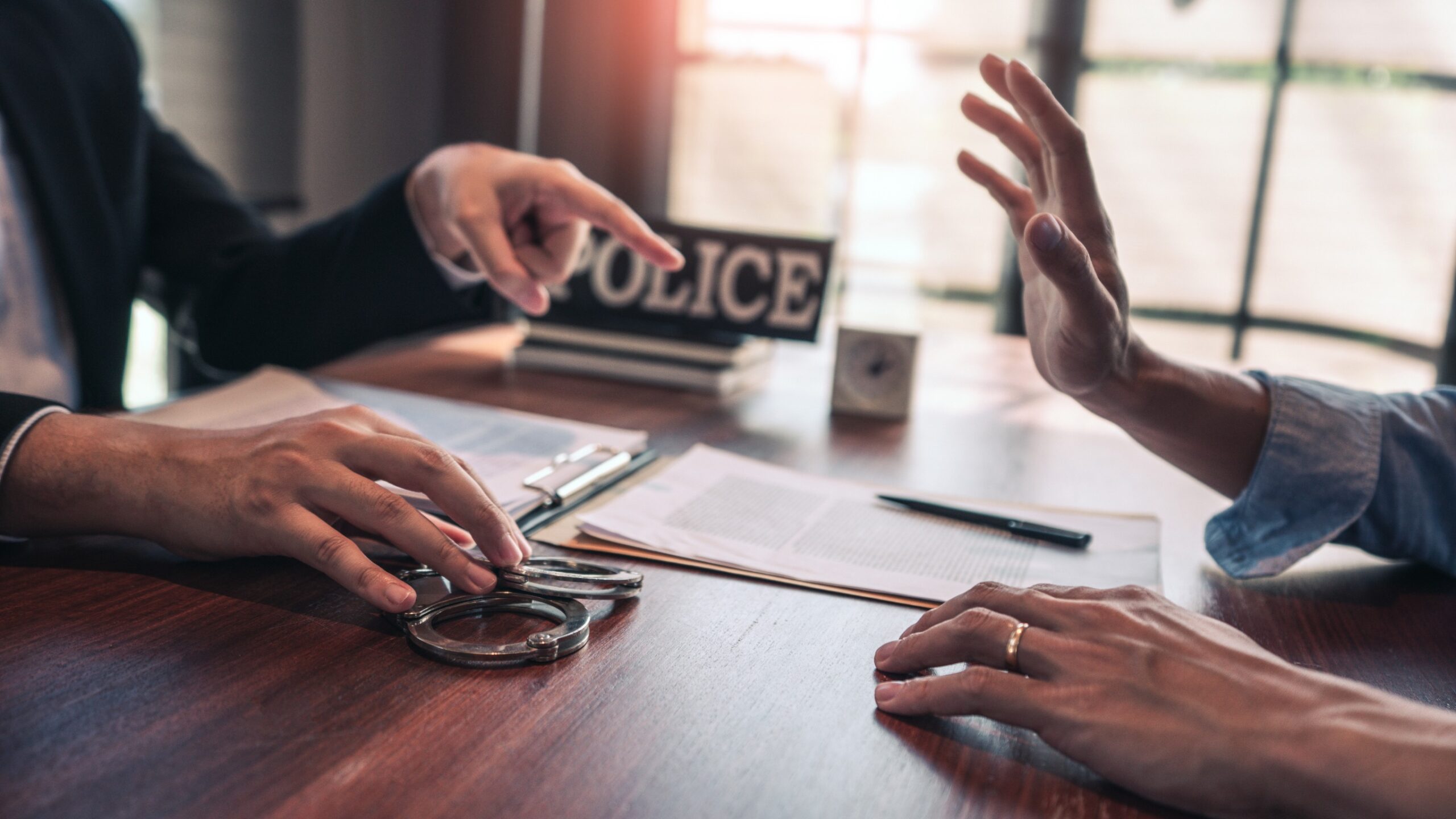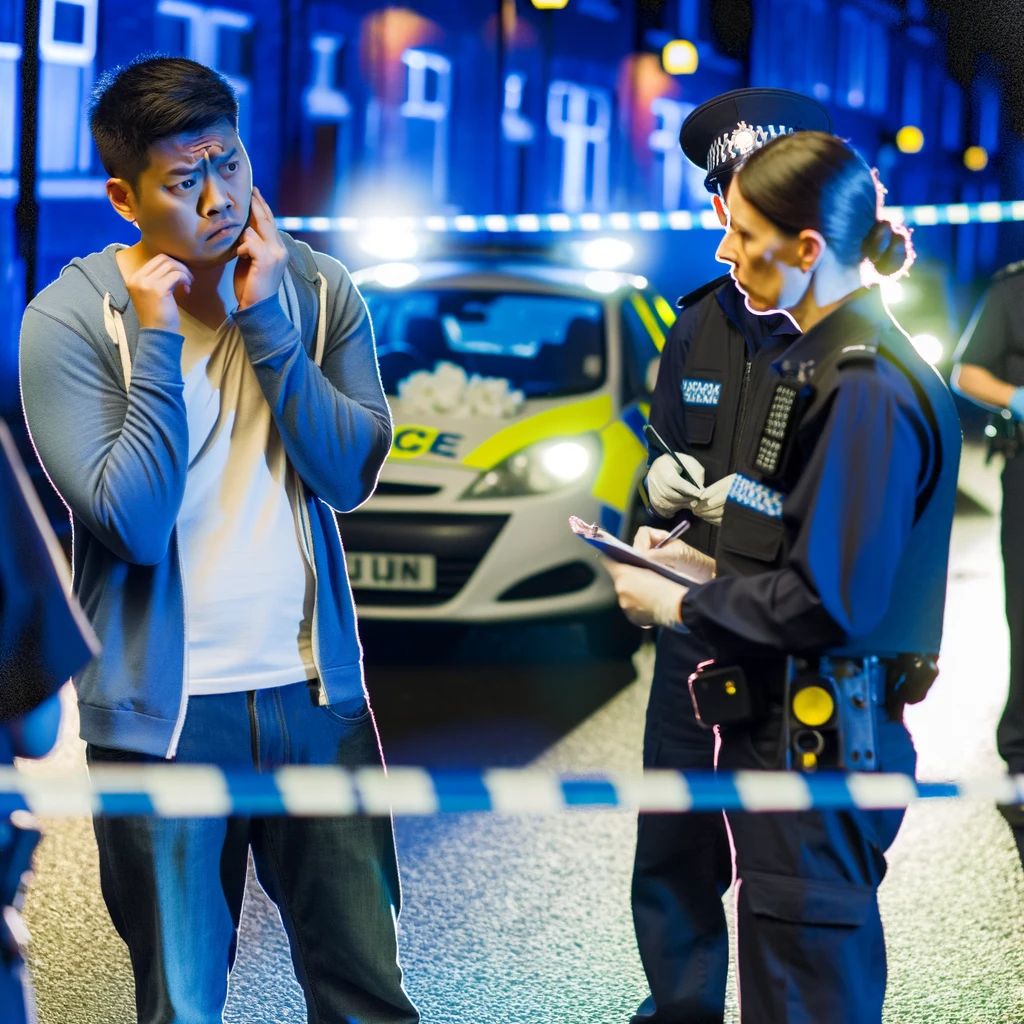When interacting with law enforcement, it’s crucial to understand your rights. One of the most important rights you have is the right to remain silent and to have an attorney present during questioning. Here are ten specific questions from the police that you should only answer with a lawyer present.
1. “Where Were You on the Night of…?”
Being asked about your whereabouts can seem like an innocuous question, but it can quickly become complicated. Also, your answer might inadvertently place you at the scene of a crime or contradict other statements or evidence. Even if you are entirely innocent, you might forget details or misstate facts under pressure. Having a lawyer present ensures that your rights are protected and that you do not inadvertently incriminate yourself.
2. “Did You Know the Victim?”
Admitting to knowing the victim can place you in a precarious position. This question can lead to further probing about the nature of your relationship, which could be used against you. Your lawyer can help you navigate this line of questioning and prevent you from making statements that could be misinterpreted. Without legal advice, you might reveal information that the police could use to build a case against you.
3. “Do You Consent to a Search of Your Property?”
Consenting to a search can have significant legal implications. Even if you believe you have nothing to hide, items found during a search could be used as evidence against you. A lawyer can advise you on whether to consent and what the consequences of consenting might be. They can also ensure that any search conducted is lawful and that your rights are upheld throughout the process.
4. “Can You Explain This Evidence We Found?”
The police might present evidence that they claim ties you to a crime and ask for your explanation. Responding without legal counsel could lead you to make statements that inadvertently confirm the police’s suspicions. A lawyer can help you understand the evidence and formulate a response that does not harm your legal standing. They can also challenge the legality and relevance of the evidence presented.
5. “Who Were You With on the Night of…?”
Police questions about your associates and alibis can be particularly tricky. Also, you might inadvertently implicate yourself or others by providing inaccurate or incomplete information. Your lawyer can help ensure that your statements are accurate and that you do not reveal information that could be used to build a case against you or others. They can also prepare you for potential follow-up questions that could arise from your answers.
6. “Have You Ever Been Arrested Before?”
Your criminal history, or lack thereof, is highly relevant to the police but can also be used to profile and judge you. Ultimately, revealing past arrests or interactions with law enforcement can bias the investigation against you. A lawyer can help you decide whether to disclose such information and how to do so in a way that protects your rights. They can also challenge any attempts to use your history against you unfairly.
7. “Do You Know Why We Want to Talk to You?”
This question from police is often a tactic to gauge your knowledge of the situation and possibly elicit a confession. However, speculating about the police’s intentions without a lawyer can lead to self-incrimination. Your lawyer can communicate with the police on your behalf and ensure that any information you provide is carefully considered. They can also help you understand the scope of the investigation and your potential involvement.
8. “Are You Willing to Take a Lie Detector Test?”
Lie detector tests, or polygraphs, are notoriously unreliable and are not admissible in many courts. Agreeing to take one without a lawyer’s advice can be a risky move. A lawyer can explain the implications of taking such a test and advise you on whether it is in your best interest. Also, they can challenge the results and the way the test was administered if necessary.
9. “Do You Have an Alibi?”
Providing an alibi can be crucial in clearing your name, but it can also backfire if not handled correctly. Also, an inaccurate or poorly substantiated alibi can harm your credibility and defense. Your lawyer can help you verify and present your alibi in the most effective way possible. They can also prepare you for the scrutiny your alibi will face from investigators.
10. “Will You Make a Statement for the Record?”
Ultimately, making a formal statement can have lasting legal consequences. Anything you say can be used against you in court, so it’s vital to have a lawyer present to guide you through this process. Your lawyer can ensure that your statement is clear, accurate, and does not inadvertently harm your case. They can also challenge any improper or misleading questions posed by the police during your statement.
Interacting with the Police
Overall, interacting with the police and answering their questions can be an intimidating and potentially dangerous experience if you are not fully aware of your rights. The presence of a lawyer can make a significant difference in ensuring that your rights are protected and that you do not inadvertently incriminate yourself. Always remember that you have the right to remain silent and to have an attorney present during any police questioning. By exercising these rights, you can better navigate the complexities of the legal system and safeguard your future.
Read More
10 Celebrities Who Became Millionaires Through Smart Investments
The Top 12 Concerning Causes for the Neglect of Black History in the U.S.

Teri Monroe started her career in communications working for local government and nonprofits. Today, she is a freelance finance and lifestyle writer and small business owner. In her spare time, she loves golfing with her husband, taking her dog Milo on long walks, and playing pickleball with friends.























































